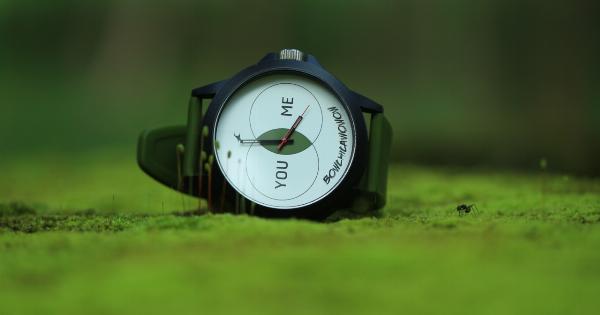The duration of intercourse is a topic of interest and curiosity for many individuals and couples.
While there is no set time that can be considered “normal” for sexual intercourse, understanding the factors that influence its duration can help dispel common myths and allow for a more fulfilling sexual experience.
Factors Affecting the Duration of Intercourse
1. Sexual desire: The level of sexual desire, both in men and women, can impact the duration of intercourse. Higher levels of desire often lead to longer-lasting sexual encounters.
2. Arousal levels: A crucial factor in the duration of intercourse is how aroused both partners are before engaging in sexual activity. Higher levels of arousal can increase the duration of intercourse.
3. Sexual experience and technique: The level of experience of both partners, as well as their knowledge of sexual techniques, can influence the duration of intercourse. Those with more experience may engage in prolonging techniques.
4. Emotional and psychological factors: Stress, anxiety, and emotional well-being can impact the duration of intercourse. When individuals are relaxed and free from worries, they are more likely to engage in longer-lasting sexual encounters.
5. Physical factors: Physical factors such as general health, fatigue, medications, and medical conditions can affect the duration of intercourse. It is important to address any underlying physical issues that may be impacting sexual performance.
The Myth of the “Ideal” Duration
There is often a misconception that a specific duration of intercourse is desired or ideal. This misconception can lead to feelings of inadequacy or performance pressure for individuals and their partners.
The truth is that the duration of intercourse varies greatly among couples and individuals, and there is no one-size-fits-all expectation.
What matters most is the satisfaction and pleasure derived from the sexual experience, rather than the length of time it takes.
Common Durations and Variations
While the duration of intercourse varies widely, numerous studies have explored average durations and common trends:.
1. Quickie: Some couples engage in what is often referred to as a “quickie,” which typically lasts a few minutes. These encounters are focused on efficiency and can be pleasurable and satisfying for both partners.
2. Moderate duration: The most common duration of intercourse falls within the range of 5-15 minutes. This duration allows for a reasonable level of pleasure and provides ample time for both partners to reach orgasm.
3. Prolonged duration: Some individuals and couples may engage in longer-lasting sexual encounters, often exceeding 15 minutes.
These extended durations can be a result of various factors, including personal preference, heightened arousal, or the use of specific techniques.
Enhancing Intercourse Duration
If individuals or couples desire to prolong the duration of intercourse, there are several methods that can be explored:.
1. Foreplay: Engaging in prolonged foreplay can increase arousal levels, leading to longer-lasting intercourse.
2. Communication: Openly discussing desires, fantasies, and preferences with a partner can lead to a better understanding of each other’s needs, potentially resulting in extended sexual encounters.
3. Experimentation: Exploring different sexual positions, techniques, and sensations can enhance arousal and prolong the duration of intercourse.
4. Relaxation techniques: Managing stress and anxiety through relaxation techniques such as deep breathing exercises and mindfulness can help individuals feel more present and engaged during sexual activity, thereby increasing the duration.
Conclusion
Exploring the duration of intercourse sheds light on the various factors that influence this aspect of sexual activity. It is crucial to understand that there is no “ideal” duration, as it varies greatly among individuals and couples.
Focusing on the pleasure and satisfaction derived from the sexual experience, rather than the length of time, creates a more fulfilling and enjoyable encounter.




























